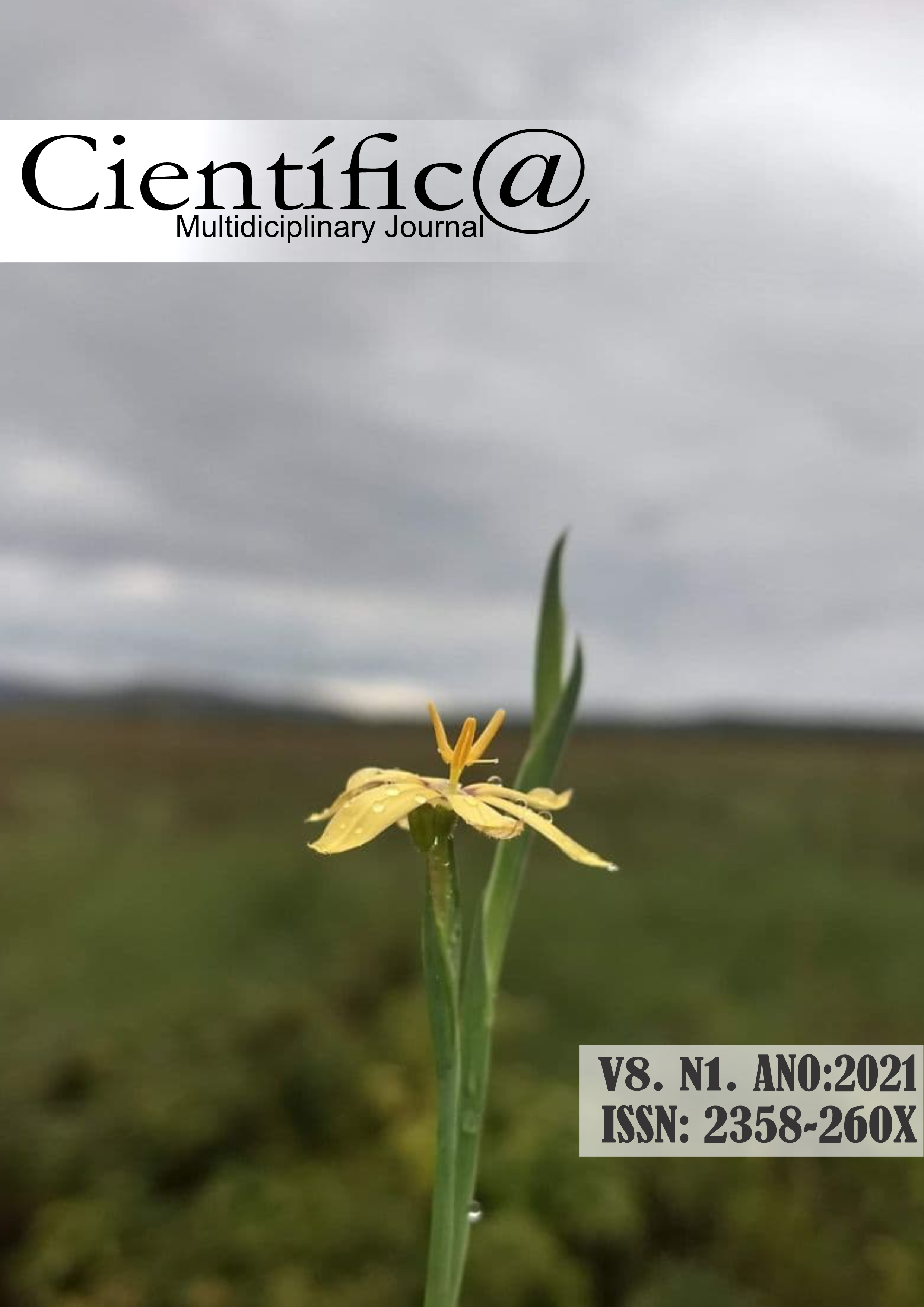ZONEAMENTO AGRÍCOLA DE RISCO CLIMÁTICO PARA GRANDES CULTURAS NO MUNICÍPIO DE RIO VERDE, GOIÁS
DOI:
https://doi.org/10.37951/2358-260X.2021v8i1.5334Abstract
Agricultural Zoning of Climatic Risk (ZARC) for productivity is an instrument of agricultural policy and risk management in agriculture. This technique allows the minimization of risks related to adverse climatic phenomena that affect crops in different ways of management and geographic location. Thus, the objective of the work was to present the ZARC for large crops in the municipality of Rio Verde, Goiás. The data were obtained through the application “ZARC - Plantio Certo”, registered for each crop the indicated sowing periods and climatic risks for that period. . The crops reported were soybeans, corn, second crop corn, beans, second crop beans, sunflower, sorghum and wheat, under rainfed conditions. The analyzes were performed for the three planting cycles (early, medium and late) and three soil textures (sandy, medium and clayey). In Rio Verde it is recommended to cultivate soy or corn with low climatic risk (20% to 30%) in the months from October to December, varying the crop cycle or soil texture. As of January, the cultivation of second crop corn, beans, second crop beans, sunflower and sorghum is indicated with a risk of (20% to 40%). Wheat cultivation in the region presents a high climatic risk (40%), with only the early cycle being restricted under clayey soil conditions.
Downloads
Published
How to Cite
Issue
Section
License
Esta revista oferece acesso livre imediato ao seu conteúdo, seguindo o princípio de que disponibilizar gratuitamente o conhecimento científico ao público proporciona maior democratização mundial do conhecimento.
A partir da publicação realizada na revista os autores possuem copyright e direitos de publicação de seus artigos sem restrições.
A Revista Científic@ - Multidisciplinary Journal segue os preceitos legais da licença Creative Commons - Atribuição-NãoComercial 4.0 Internacional. 

